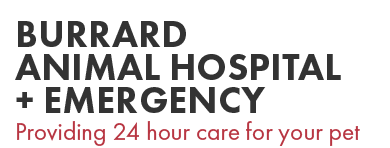Library
-
Marbofloxacin is given by mouth and is used on and off label to treat certain bacterial infections including leishmaniasis, tuberculosis, and hemoplasmosis. Common side effects include vomiting, diarrhea, and lack of appetite.
-
Meloxicam (brand names Metacam, Meloxidyl, Loxicom, OroCAM) is given by mouth in the form of a liquid, capsule, or tablet to treat pain and inflammation in dogs, cats, and other small mammals. Do not use this medication in pets that are allergic to it, or in pets concurrently using corticosteroids or other NSAIDs. If a negative reaction occurs, call your veterinary office.
-
Metronidazole is given by mouth or injection and is used off-label to treat certain anaerobic bacterial and protozoal infections and gastrointestinal conditions in dogs, cats, and other animals. Give as directed. Side effects may include nausea, vomiting, diarrhea, regurgitation, decreased appetite, tiredness, and drooling. Do not use in pets that are allergic to it, are debilitated, or are pregnant or nursing. If a negative reaction occurs, contact your veterinarian.
-
Midazolam is a benzodiazepine used for its sedative, anti-anxiety, and muscle relaxant properties. It is primarily used as a sedative before surgery and to stop seizures. It is used “off label” or “extra label” in animals. This medication is a controlled substance primarily given via injection by your veterinary team, though it may be prescribed to your pet for intranasal or intrarectal administration at home.
-
Mupirocin otic, also known as pseudomonic acid A, is an antibiotic used in the treatment of ear infections. It is used “off label” or “extra label” to treat ear infections in animals. Mupirocin comes in ointment or liquid drop suspension forms that may be specially compounded.
-
Nitenpyram is given by mouth and is used on and off label to treat adult flea infestations and fly larvae infestations. Give as directed by your veterinarian. The most common side effect is itchiness. Do not use in pets that are allergic to it, in pets that weigh less than 2 pounds, or in pets younger than 4 weeks old. If a negative reaction occurs, please call your veterinary office.
-
Nystatin is an antifungal, given by mouth in the form of a tablet or liquid suspension, and used off label to treat Candida fungal infections in dogs, cats, birds, and reptiles. Side effects are rare, but at high doses, it could cause stomach upset or mouth irritation. It should not be used in pets that are allergic to it.
-
Olopatadine ophthalmic is an antihistamine medication used to treat pruritus (itchiness) of the eyes caused by allergies in animals. Olopatadine ophthalmic comes in liquid drop suspension form.
-
Oxytocin is a hormonal agent used to induce or enhance uterine contractions at the time of birth in cats, dogs, rabbits, rodents, and other mammals. Oxytocin is also used in mammals to help start milk production, control uterine bleeding, and help shrink the uterus to normal size after birth. It has been used in birds and reptiles to help resolve egg binding.
-
Ponazuril is given by mouth and is used on and off label to treat protozoal parasites in several animal species. Side effects are uncommon but may include soft stools.


